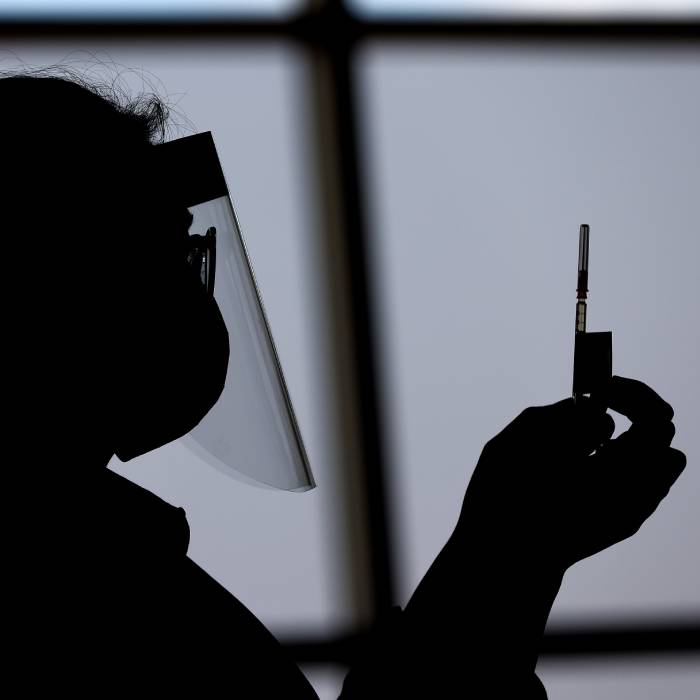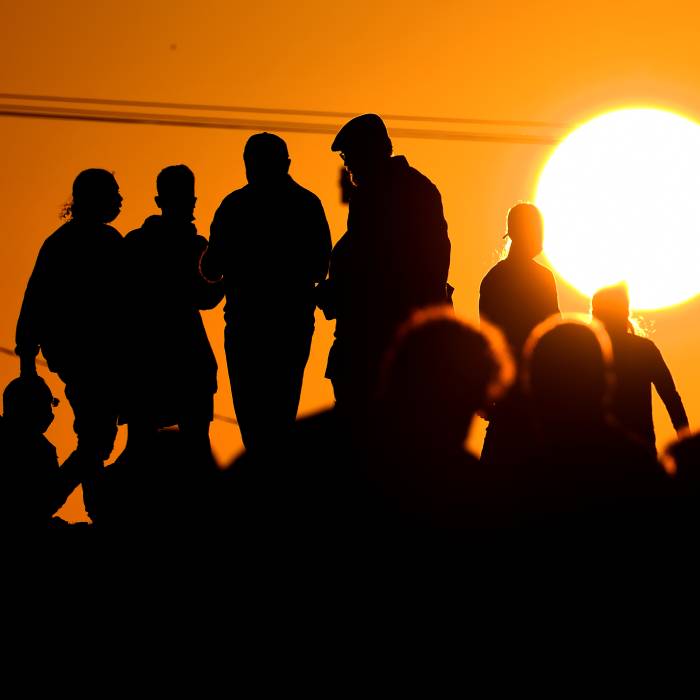Australia’s lowest-paid workers shouldn’t be blamed for inflation, the employment minister said, after the industrial umpire announced a bump to the minimum wage.
The Fair Work Commission on Monday decided to lift both minimum wages and awards by 3.75 per cent a year, giving full-time workers an extra $33 every week based on a new hourly rate of $24.10.
The changes will affect about one in five employees, or about 2.6 million people, from July.
Critics say it will make it harder to wrangle inflation back into the two to three per cent target band, from a current 3.6 per cent.
However, Employment Minister Tony Burke said the lowest-paid Australians, who received a 5.75 per cent increase last year, deserve wages that keep up with the cost of living.
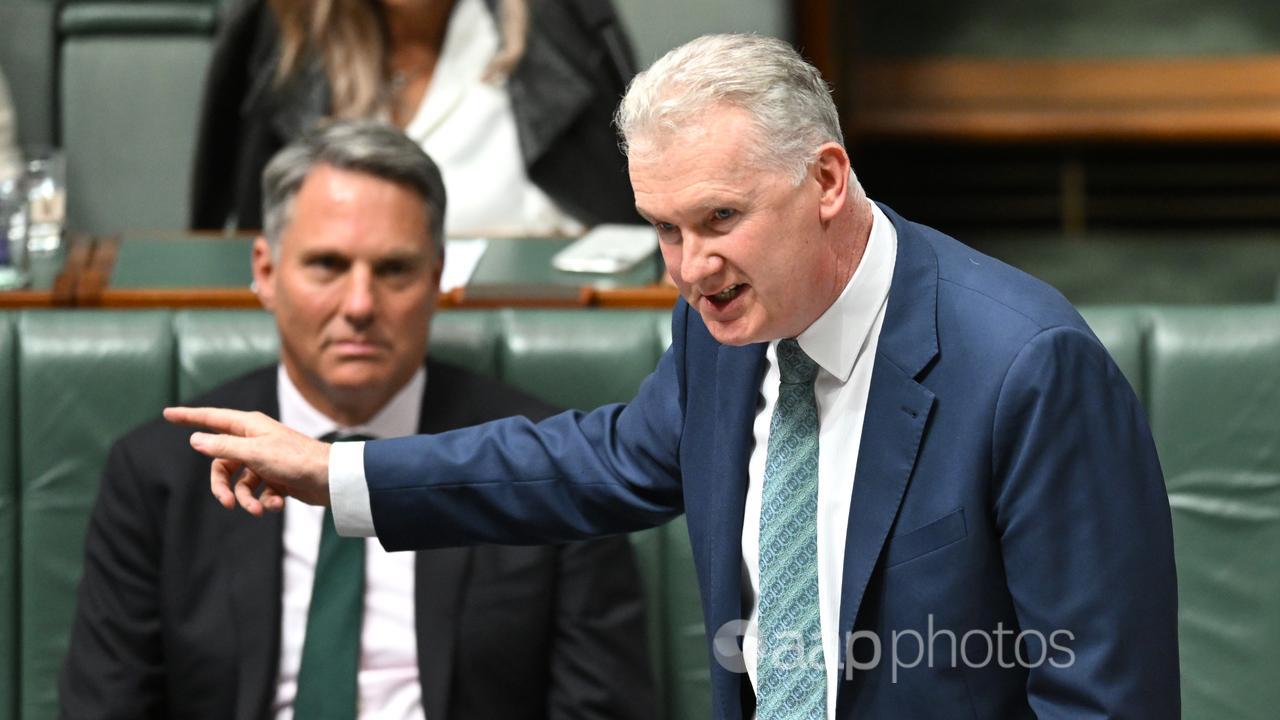
“It is disgusting for anyone to blame 11 per cent of the nation’s payroll – on the lowest wages in the country – and to say inflation is their fault,” he told reporters in Canberra.
“That is the most appalling case of punching down.
“What we have here are people who have less room to move with the cost of living and we’re making sure that their wages keep up.”
Prime Minister Anthony Albanese rose in parliament and brandished a $1 coin at his political opponents, saying his government supports working people getting ahead.
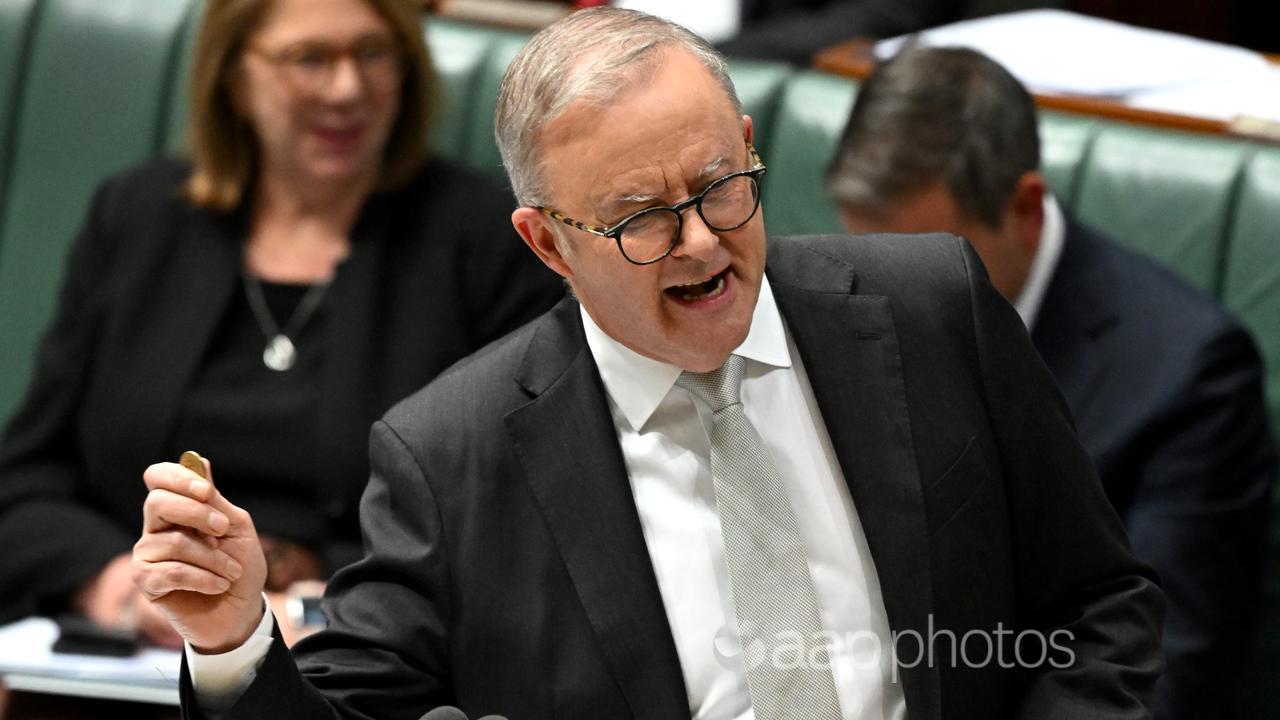

coin, harking back to the last election when he promised workers pay rises. Image by Lukas Coch/AAP PHOTOS
“It took the now opposition in their entire wasted decade in office to lift the minimum wage by as much as we have in just the two years in which we have been in office,” he said.
Australian Chamber of Commerce and Industry executive Andrew McKellar said the pay hike would increase costs for small businesses and delay interest rate decreases.
“We can’t just say, ‘let’s grant wage increases which outstrip inflation,'” he said.
“Small businesses are increasingly going to have to pass on those higher costs that they face – whether it be from increased red tape or … future wages claims that will come as a result of this decision.
“You have to link wages growth to productivity.”
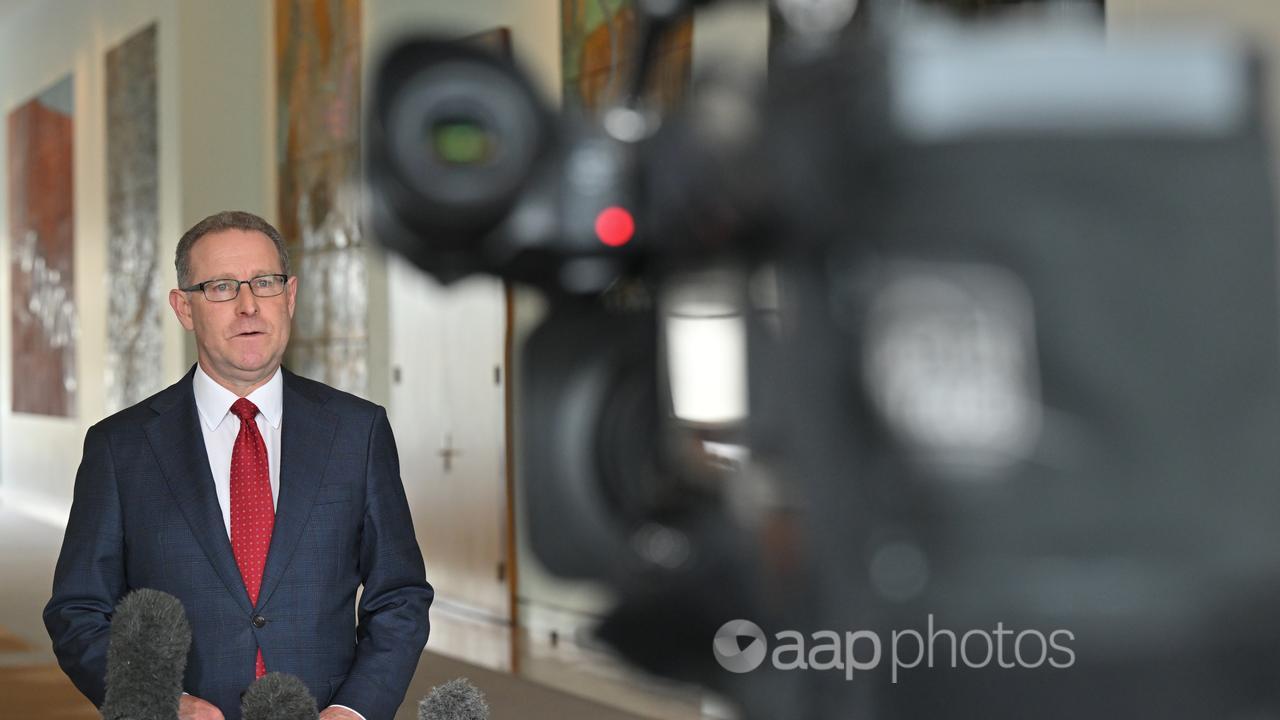
Unions wanted an increase of five per cent, while business groups recommended between two to three per cent.
Fair Work Commission president Adam Hatcher said it was not an appropriate time to raise wages significantly above the inflation rate because labour productivity was no higher than four years ago and growth had only recently returned to positive territory.
“A primary consideration has been the cost-of-living pressures that modern award-reliant employees – particularly those who are low-paid and live in low-income households – continue to experience,” he said.
“This increase is consistent with the forecast return of inflation rate to below three per cent in 2025.”
The commission noted Australians would soon see an increase in their disposable incomes thanks to the federal government’s upcoming tax cuts and other relief measures included in the federal budget.

However, an increase to the superannuation guarantee amount would moderate those benefits.
Asked about the decision, Opposition MP Paul Fletcher said inflation will not go away any time soon.
“The best way to get real income increases is to get inflation back down under control,” he told Sky News.
But Committee for Economic Development of Australia chief economist Cassandra Winzar says the wage raise “will not substantially push up inflation or place upward pressure on interest rates”.
ANZ senior economist Catherine Birch also noted this was the first time in three years the nominal award wage increase exceeded inflation but this “does not change the risks around the outlook for wages, inflation or the case rate”.
The commission will also soon launch proceedings to address gender undervaluation for modern awards that apply to female-dominated industries and encompass early childhood education, care workers, social workers, psychologists and dental assistants.
Australian Council of Trade Unions secretary Sally McManus called on the commission to provide interim pay rises to those in key feminised occupations.
“When workers have more money to spend, it stimulates local businesses and drives economic growth,” she told reporters in Adelaide.
















